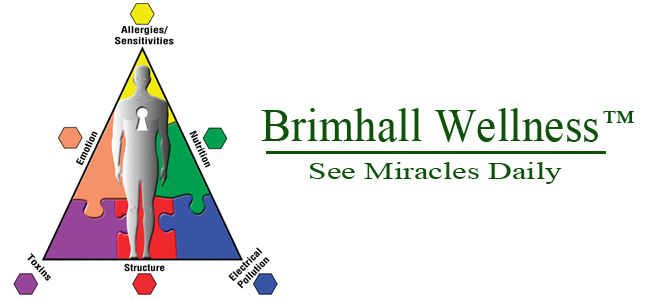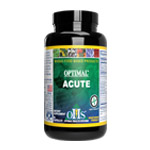
Research Shows Proteolytic Enzymes Out-Perform NSAIDs
September 14, 2020 Puzzle Piece
The
inflammatory response is a defense mechanism in higher organisms to
protect them from infection and injury. Its purpose is to localize and
eliminate injurious agents and to remove damaged tissue components so
that the body can begin healing.
The response consists of redness, heat, swelling, and pain. Redness is
caused by the dilation of small blood vessels in the area of injury.
Heat results from increased blood flow through the area. Fever is
brought about by chemical mediators of inflammation and contributes to
the rise in temperature at the injury. Swelling is caused primarily by
the accumulation of fluid outside the blood vessels. The pain stems from
both the swelling and release of chemicals that induce inflammation.
The most important feature of inflammation is the accumulation of white
blood cells at the injury site. This means inflammation is an immune
response. It also means your body is trying to repair itself. When you
use NSAIDs to suppress inflammation, you suppress the healing process as
well.
NSAIDS, Inflammation and Healing
NSAIDS are Non-Steroidal Anti-Inflammatories, like ibuprofen, naproxen,
etc. The problem is they often do more harm than good. They are sold
over the counter under commonly known brand names such as Motrin, Advil,
Aspirin, Daypro, and so on. They are also available as
prescription-strength anti-inflammatories.
NSAIDs are administered to control acute inflammation and relieve pain.
However, they achieve this by inhibiting the production of
prostaglandins, the chemical that activates the inflammatory response.
Prostaglandins are also necessary for pain, fever, protecting your
stomach and intestinal lining, promoting blood clotting, and normal
kidney function.
When people take these drugs, they control inflammation and decrease
pain, but the muscles and other tissues go into a non-regenerative
phase. In other words, NSAIDs interfere with healing and recovery.
Also, many reports have shown that NSAIDs may damage the liver and
kidney, as well as disrupt the stomach’s mucosal lining, predisposing it
to acute gastritis and ulceration.
So, when NSAIDs inhibit prostaglandin production, your pain and
inflammation may go away, but all these other functions are thrown
off-balance. This explains the side effects and warnings that come with
taking these drugs.
More and more research is released every year, exposing more ways this
type of medication harms the body. Research shows NSAIDs cause stomach
problems, muscle loss, ulcers, fertility issues, and more. NSAIDs do not
promote long term relief or healing.
Inflammation makes way for healing to take place. So, when you take
NSAIDs, you completely shut down your natural inflammatory response.
Unlike proteolytic enzymes, which inhibit only the “bad”
prostaglandins. Aspirin and other NSAIDS inhibit
all prostaglandins. NSAIDS inhibit the enzyme called cyclooxygenase.
This means you heal SLOWER than if you took nothing.
In human studies, NSAIDs have been shown to accelerate the radiographic
progression of osteoarthritis of the knee and hip. For those using
NSAIDs compared to the patients who do not use them, joint replacements
occur earlier, more quickly and frequently.
Massive NSAID use in osteoarthritic patients, since their introduction
over the past forty years, is one of the main causes of the rapid rise
in the need for hip and knee replacements. Research indicates NSAID use
causes degeneration of cartilage, ligaments and tendons.
Chronic intake of NSAIDs causes an estimated 41,000 hospitalizations and
3,300 deaths each year among older adults. This includes ulcers, kidney
failure, meningitis, heart attack, and heart failure. A cohort study of
older adults found that NSAIDS were significantly associated with an
increased risk of admission for heart failure as compared to those not
taking NSAIDs.
Proteolytic Enzymes in Inflammation and Healing
Studies show you can heal 33% faster with holistic anti-inflammatory enzyme therapy. Optimal Acute
offers a safe and effective alternative to synthetic painkillers. Acute
contains heavily researched ingredients proven to reduce swelling and
allows healing faster than NSAIDs.

Acute is the safe replacement for NSAIDS. Not only does it lack the
negative side effects commonly associated with them like liver and
kidney damage, you will heal faster. Research and patient testing have
shown these ingredients to be extremely effective in healing gout and
killing harmful bacteria and viruses. It does not harm the good
bacteria in your gut that help keep you healthy.
Optimal Acute, with
its protease is where the magic happens in this formula. Its main
function is to digest proteins. When injury occurs, proteins break off
from the injury site and float around. Protease increases blood flow and
digests this protein debris, which in turn reduces overall inflammation
and pain.
This formula has the enzymes that reduce inflammation and contains
antioxidant qualities from copper, zinc and manganese. This combination
helps stabilize cell walls, thus decreasing further swelling and
increases healing. In addition, the minerals help with wound repair and
ensure optimal delivery of each of the nutrients contained in this
remarkable formula.
Optimal Acute is the first place to turn for safe and effective relief from inflammation and pain.
Dosing
Take 1-4 capsules as soon as symptoms or injury occur, and another 1-4 every 3-4 hours.
Warning: the extremely high protease content can cause nausea. Start
with a small dose. It is most effective on an empty stomach, but you
may have to take it with some food to prevent nausea.
Contraindications
Do not take if you are already on a blood thinner.
Yours in Health and Wellness,
John W Brimhall, DC, BA, BS, FIAMA, DIBAK
(Only registered customers can rate)
There are no comments for this product.